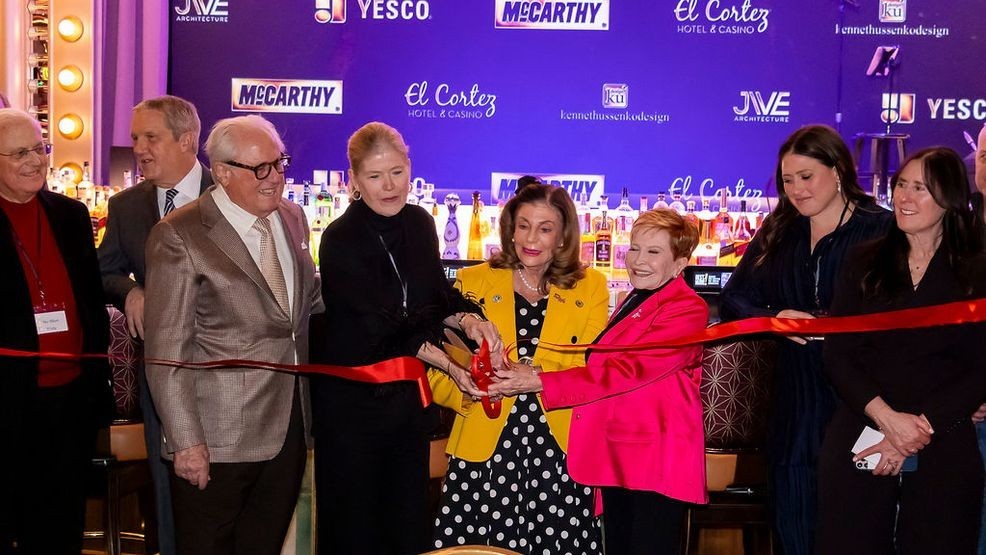Graton’s suit argues that former Secretary Deb Haaland failed to follow federal law, and that the administrator who signed off on the decision didn’t have the authority.
The Federated Indians of Graton Rancheria are suing the U.S. Department of the Interior in federal court, seeking to compel the department to rescind its approval of the Koi Nation’s application to develop a resort casino outside Windsor.
The Graton tribe was unsuccessful in delaying that approval via a previous suit in late November. The latest legal action, filed Feb. 14 in the U.S. District Court’s Northern District of California, is aimed at a new Interior Secretary.
Doug Burgum has replaced Deb Haaland in the position following a change in presidential administrations.
The suit against Burgum, several other officials in the Department of the Interior, and the department itself, along with one of its branches — the Bureau of Indian Affairs — cites “arbitrary, capricious and legally inadequate decisions” by the defendants.
The complaint argues that regulators “steamrolled” four separate federal acts governing tribal gaming, as well as Graton Rancheria’s sovereign rights.
“The Federated Indians of Graton Rancheria continues to fight to reverse the previous Interior Department’s rushed, illegal approval of the Koi Nations’ proposed casino on our tribe’s sacred ancestral lands,” Graton Chairman Greg Sarris said in a statement.
Most of Graton Rancheria’s accusations have been expressed previously by the tribe, by public representatives and by members of the rural Shiloh community, in a variety of forums. The suit against Burgum’s Interior Department, however, includes a new allegation — that the person who signed the Record of Decision on Jan. 13 had no authority to do so.
As outlined in the legal complaint, authority within the Department of the Interior is strictly governed by a departmental manual. Assistant Secretary of Indian Affairs Bryan Newland had that authority but recused himself from the Koi decision because he has represented the tribe in the past as an attorney.
Authority automatically passed to Wizipan Garriott, the principal deputy of Indian Affairs, but Garriott left the Interior Department on Jan. 10, according to the lawsuit. His acting interim successor, Kathryn Isom-Clause, also recused herself.
Bureau of Indian Education Director Tony Dearman signed the documents authorizing the U.S. government to take land into trust for a Koi Casino, but Graton Rancheria claims it has not seen any documentation granting that authority to Dearman.
A week after the decision was finalized, Donald Trump succeeded Joe Biden in the White House. Burgum, a former governor of North Dakota and Microsoft executive, replaced Haaland in the Interior office soon after.
Graton Rancheria’s attempt to secure injunctive relief in November had focused on what the tribe called a flawed review of environmental and cultural resources. The current lawsuit also criticizes the project’s environmental impact statement (or EIS), arguing that it doesn’t take “a hard look” at the potential consequences, as federal law requires.
The new suit cites a failure to adequately assess wildfire risks, traffic, air quality, noise, water, biological resources and other factors.
“Remarkably, the Final EIS fails to evaluate any geographic alternative to the Shiloh Site, including any within Lake County where the Koi Nation’s demonstrated ancestral territory is located,” the complaint notes.
The Koi trace their precolonial origins to the village of Koi, on an island in Clear Lake. They were relocated to the Lower Lake Rancheria in 1916, then uprooted again in 1956 when Congress authorized transfer of the tract to Lake County.
The Koi acknowledge those origins, but argue that the Shiloh property was along their traditional trading routes, and that many of their people settled in Sonoma County following their ejection from the rancheria. Graton has repeatedly attacked that argument, countering that allowing a Southeastern Pomo band such as the Koi to operate here infringes on the integrity of Southern Pomo bands like Graton Rancheria.
Graton’s Feb. 14 suit again accuses the Koi people of “reservation shopping.”
“For months, our tribe requested to consult with Secretary Haaland and her team to demonstrate how the Koi Nation’s project will harm our cultural resources and undermine our tribal sovereignty, but they ignored our repeated pleas,” Sarris wrote. “Instead, unelected Washington bureaucrats rushed through this process to achieve a predetermined outcome. We urge the court to reverse this illegal land grab.”
In a brief statement, Koi Nation spokesperson Sam Singer said the tribe is “aware” of the new lawsuit and that it “looks forward to the U.S. Department of Justice’s defense” of Interior’s decision.
An Interior representative said it is department policy not to comment on pending litigation.
The Koi project stands as a potential rival to Graton Resort & Casino, owned by Sarris’ tribe, which broke ground in June 2023 on a $1 billion expansion outside Rohnert Park. Sonoma County’s other gaming tribe, the Dry Creek Rancheria — which operates River Rock Casino outside Geyserville — is also opposed to the Koi bid.
The Koi hope to build a 400-room hotel and a 530,000-square-foot gambling floor, with 2,750 gaming devices and more than 100 table games, on 68 acres of land bordered by Shiloh Road and Old Redwood Highway.
The Koi Nation purchased the land in September 2021, sparking a contentious debate that remains unsettled.
You can reach Phil Barber at 707-521-5263 or phil.barber@pressdemocrat.com. On X (Twitter) @Skinny_Post.





